- Home
- Paullina Simons
Six Days in Leningrad Page 17
Six Days in Leningrad Read online
Page 17
I glanced at my father, who was looking profoundly ashamed.
“Do you think we can see the rooms?” I asked Ina.
“Yes, of course! Oh I wish I knew you were coming, I would have cleaned up. You will pardon the mess.”
My father started to apologize for the inconvenience we were causing.
“What are you talking about, Yuri Lvovich? We are so happy you came! Is this your first time back in Leningrad?”
When my father said it was his third time, Ina tutted. “And you never came to visit? Tsk. Tsk.”
As we walked through the hallway, we had to hold on to the walls. The narrow corridor was poorly lit and the floor was uneven. Two bare light bulbs burned in the hallway. Just like before. Winter coats were hung by the dozens on hooks in the wall, even though it was July. Where else were the residents going to hang their winter coats? There were no closets. The dirty wallpaper hung torn off the wall.
We stopped at the gray door that led to our rooms.
I said to my dad, “I don’t remember the doors being gray.”
“There’s a lot you don’t remember,” he said.
“Gray?” said Ina, chortling a bit. “They’re not gray. They’re white. They just haven’t been washed in a while. I never even noticed. Come in, come in. Please excuse the mess.”
I couldn’t walk in right away.
My father is coming home from an afternoon at the park. He is reading the newspaper. When he is almost at our door, our neighbor Tonia Morzhakova calls out to him.
“Yura! Where is Paullina?”
“Right here,” replies Papa.
I am swinging upside down from the crook of my father’s arm. He is holding me absentmindedly by the legs, hidden behind his newspaper.
“Plinochka, are you coming in?”
The first thing I noticed about our old rooms was the tall ceilings — so tall that they managed to diminish the narrowness and shortness of the hallway itself. The ceilings were pockmarked with water damage stains.
My father leaned over and whispered, “I used to sleep in this hallway, when I would come back too drunk and didn’t want to disturb your babushka and dedushka.”
“What do you mean, sleep?” I whispered back. “We always had a table here.” Like the table that was there now.
“Shows you what you know,” he said. “There used to be a couch here. Not a table.”
“Excuse us. Excuse our mess,” Ina kept saying.
My father kept apologizing for intruding.
The little hallway was tiny. All the furniture was different. I didn’t like that. The wallpaper was different too, but the water stains on the ceiling, which resulted in the plaster breaking and falling off — now that was the same.
I stared at the hallway table long enough to remember sitting down and eating dinner there alone, while my mother was in the kitchen.
I’m eating my macaroni with butter, and I start to cry. Mama runs in from the kitchen: What, what?
I don’t want to die, I say.
Oh, honey, you won’t die. You’re so young, you have your whole life, you’re not going to die.
She pats me on the back and leaves.
I eat my macaroni with butter. A few seconds go by. I start to weep and yell, Mama, Mama. She runs in again. What, what?
I’m going to die, I say. I don’t want to die.
You won’t die, she says, less patiently. You’re going to live a long, long life. You won’t die. You’re a baby. Now eat your food.
She leaves.
I eat my macaroni with butter. A few seconds go by. I cry again. Mama, Mama.
She runs back in.
I don’t want to die, I yell.
She wallops me on the head. Stop your nonsense, she yells. Eat your food. You’re not going to die. I told you.
She leaves.
I’m five.
Papa’s gone.
“Which room was yours, Paullina?” Ina asked.
“This one,” I said, pointing to the door. We walked in.
It took my breath away to see how narrow my room was. The walls were covered in red wallpaper and the big wooden furniture made the space seem even smaller.
Everything was immaculate aside from the bed, which was not made. Ina apologized profusely as she rolled up the bedclothes and stuffed them under the bed.
My father had already left and gone into the kitchen but I stood dumbly by the door, trying to see how we could have fit a double bed next to the wall when the room was clearly only seven feet wide.
The window had a deep sill and no shutters.
While Ina rushed around cleaning up the mess that didn’t exist, her daughter, who had absolutely nothing to say to me, stood and brushed her daughter Sophia’s hair so that I could take a picture. What I wanted to do was look away. Look away, look at something else, as I had been doing for a quarter century. What relief not to think, not to remember, not to stand and pretend it was all right. I smiled at Ina who was searching my face — for what, I didn’t know. For sentiment? For happiness?
“You like the wallpaper? It’s new.”
“I like it very much.”
We went into my parents’ old room and I stood by the same door handle I grabbed as a young girl of two, when I could barely reach it.
My father, who had come back, obligingly agreed to take a picture of me all grown up by the door, my hand on the handle.
He couldn’t get his camera to work.
“Maybe the battery is dead,” he said.
“Papa, I just put in a new battery yesterday, remember? Shepelevo?”
“Well, you’ve done something with it, then.” He pushed the flash down and took the picture without it. The shutter snapped.
“Oh, so it works without the flash,” I said.
“Yes,” he said impatiently. “Paullina, you have to know how to use the camera. The flash won’t work without sufficient light.”
Ina and her daughter stood politely to the side.
“Wait, let me understand. The flash needs light in order to work?”
“Yes.”
“So in darkened conditions such as this room, the flash won’t work at all?”
“It’s a very sensitive camera,” he said.
“Clearly.” I turned to Ina. “Ina,” I said, “the rooms have been redecorated.”
“Yes, you like it?”
“Very much. But the furniture is different.”
“Yes!” she said proudly. “It’s from Europe.”
“Ah. What did you do with our old furniture?”
“Sold some,” she said. “Gave the rest to my parents. They still use it.”
“Let’s go into the kitchen,” my father said. “Please.”
The kitchen was outside the gray door.
It had warped linoleum, bare dirty walls and bare bulbs. I went to the open window and stared down into the courtyard. I saw myself, five years old, playing. I could hear my mother calling me. Often there were no other kids there and I played alone.
The kitchen had no cabinets, so all the aluminum pots and pans were piled on a few shelves. Where did they keep their dry goods? Where was the refrigerator? There wasn’t one.
There was an old stove.
“Papa, is this the same stove we had?”
He shrugged.
“The same, the same!” said Ina.
I leaned closer to him. “You think the pots and pans are ours, too?”
He looked down at the torn linoleum.
“You remember the pots and pans?” Ina asked.
I stared at my father. He stepped away from me, looked out the window, and said, “Paullina, we have to go.”
“You sure?” Ina asked.
“Papa,” I said. “Do you remember the carp?”
Lightly he laughed in spite of himself, pointing to the middle of the kitchen floor.
“Yes,” he said. “He was right here. I remember. He was in your bath.”
My father says to me, “Come h
ere, Plinka. Come, I want to show you something.” He is smiling. I smile too.
“What?” I say, already excited. His enthusiasm guarantees my own.
He leads me into the kitchen, on the floor of which stands my small bathtub. In this white enamel tub I see a fish, large and alive. It fills up nearly the entire tub. It is swimming. It is trying to swim away. The fish is black and shiny, and distressed.
“What is that?” I ask my smiling father.
“Carp,” he says proudly. “Carp.”
We eat the carp for dinner. It is delicious.
As we stood uncomfortably in the middle of the kitchen, I noticed a pungent smell. I tried to ignore it but was finally forced to admit it came from the half-open door of the lavatory. Despite the wide-open window, despite the warm breeze from outside, the odor was excruciating. You could not breathe through your nose. You would retch.
“You’re right, Papa,” I said. “Time to go.”
He said he had to make a stop first. I looked at him with deep sympathy.
When he came out of the lavatory, I could see by his face that he wished he had waited.
With Ina talking into our backs, we walked down the hallway to the front door.
In the kitchen, Svetlana stood by the table, her hands up to her wrists in a mixing bowl full of ground beef.
“Stay, please, please,” she said. “I am making you stuffed cabbage.”
“You have pelmeni?” I asked. It was hunger talking. My father gave me a shove.
“You like pelmeni?” said Svetlana, quickly washing her hands in the sink. “I will make you pelmeni.”
Papa glared at me, apologizing again. “No, we can’t, we really can’t, we have dinner plans.”
“Please,” she said.
“We really can’t,” said my father.
Not giving up, Svetlana poured us each a shot of cognac and we drank it on empty stomachs. We hadn’t eaten since the Laima café. Was that even the same day, the mushroom soup from Brussels and Viktor’s salad Olivier?
“Then come back another day,” Svetlana said as she poured my father a second glass while I declined. “Come back and have dinner with us. I’ll make you anything you want. When are you leaving Russia?”
“This Saturday,” my father lied. We were actually leaving on Sunday.
“Plenty of time. It’s only Wednesday. Come back tomorrow, or Friday,” she said pleadingly.
“We’ll try,” my father said. Which is what he says when he knows it will never happen.
Svetlana wrote down her name and phone number.
Holding my hands, she talked passionately into my face. “Oh, my poor life, my poor, poor life. I lived in St. Petersburg, Florida, you know. I lived there for five years. I have many friends there.”
“Why didn’t you stay?” I asked.
“Why didn’t I stay?” She rolled her eyes and clucked her tongue. “Because. Husband here.” She said the word husband as if she were saying the word prison, or rats.
“I would love for you to get something to my friends in St. Petersburg, a letter, a little package. If you come back, I will get it all together. Please.”
Squeezing her hands, I said, “You can’t mail them the letter?”
She shrugged. “I could, I guess, but it would be so much better being delivered by you.”
People in Russia, even those who have been to America, even those who have lived in America, have only the vaguest notion of distance. To them, the 1600 miles between New York and Dallas, or the 1100 miles between Dallas and St. Petersburg, Florida, is just a drive away, a day trip. We were all in America, and that was the only thing that mattered. We were all in the same place.
“So what kind of an artist are you?” I asked.
“I’m a singer,” she replied, unable to hide the pride from her face.
I thought of a song I would have liked to hear, the song in the soul of every Russian. “Do you know, ‘Shine, Shine, My Star?’”
Svetlana, standing barely a foot away from me, put her hands on her heart, opened her mouth, and in a gorgeous operatic voice began to sing “Shine, Shine, My Star.”
“Shine on, shine on, my only star
My star of love eternally
You are my sole and chosen one
There’ll be no other one for me . . .”
After the first verse, she broke down and cried.
My father stood by my side, not bothering to hide his ashen face.
I hugged her, he shook her hand, and we let ourselves out the brown door.
Trudging down three flights of stairs was harder than the climb up, which had been full of youthful anticipation, at least on my part. Having seen was more terrible than having remembered. Now there could be no more facile forgetting.
When my mother went to Russia in 1987, she visited the Fifth Soviet apartment. She spent a long time telling me all about it. Yet now, after being inside, it was as if she hadn’t told me a thing.
My mother didn’t tell me about the floor or the walls, about the size of the rooms or the heart-wrenching decay of it all. She didn’t tell me about the stench from the toilet.
She told me she sat down and had tea with the Morzhakovs, who lived in the room adjacent to ours and who had since died. Morzhakov had turned informant for the KGB, my father later told me. (“Don’t you remember how the year before I was arrested he took to his bed with a cold that lasted a year? He lay with his ear against the wall and listened in on all my meetings.”) Because of Morzhakov, the KGB collected enough evidence to send Papa away to Shpalerka for a year, Mordovia for two years and then exile for another two.
That’s what my mother told me about in glorious detail — having tea with the man who had spied on my father.
We walked in silence down Fifth Soviet, and then turned left on Suvorovsky Prospekt. I wanted to walk past my old kindergarten on Sixth Soviet, but I saw my father was close to collapse, so I didn’t ask. It was a beautiful sunny evening, around six. The sun was slightly past zenith in the sky. Both of us writers, speakers, my father and I were out of words.
After we bought some film for the camera, we started to talk a bit. About the proliferation of stores and how hard the Russians tried to be like Westerners; how much more there was now than when I was young, how now you could buy film anywhere, even on Suvorovsky, just like in the West. I listened, but I was thinking about our apartment.
“Papa, when was our building built?” I asked him as we made our way to the metro. “I guess it had to have been before the war, because Dedushka lived there?”
“And his mother when she was a young woman,” said my father. “It was built in 1857.”
“No, stop it.”
“It was meant to last a hundred years.”
“Stop it.”
“Now you know.”
“What about the bathrooms?”
“Same,” said my father.
“What about the kitchens?”
“Same,” he said. “Floor, same. Walls, same. Maybe the wallpaper was different then. I don’t know.”
We walked down Suvorovsky.
“It’s the same toilet we had when I was little,” I said.
“Forget you,” my father said. “It’s the same toilet I had when I was little. The same overhead chain that barely works. It barely worked when I was growing up. It barely works now. Yes, that’s right. It’s not all about you. It’s not just your apartment. I was born in that apartment, raised in that apartment, was a father and a husband in that apartment. It was the first and last place I lived in Russia until we left when I was thirty-seven.”
“But, Papa,” I asked quietly. “Why the smell?”
“Why the smell?” he said, exasperated. “It’s the smell of Communism. The toilet belongs to everybody. That means nobody cleans it.”
We couldn’t talk about it anymore. I couldn’t think about it anymore. The northern sun shined bright on the gray and cream daub of the Suvorovsky buildings.
I was doin
g the New York City thing: looking for a yellow cab. I would have gladly paid two hundred rubles to have a man, any man, take us to Anatoly’s. Although what I really wanted was to find a park, a bench, and sit. I wanted to not move and not speak for three hours. Then I wanted to get up and walk past my Fifth Soviet building again, and touch it. And then I wanted to go back to Grand Hotel Europe and use the toilet in my Art Nouveau room and go downstairs to the glass mezzanine and have a sandwich and a cup of tea. I wanted not to speak to anybody for the rest of the evening.
But human nature is such that even when everything hurts, we find ways to cheer ourselves up. I started goading my dad into going into one of the restaurants and having some pelmeni. The signs in the windows of the cafeterias all read, “WELCOME! PLEASE COME IN! HOT DELICIOUS PELMENI, AND CHEAP!”
“Papa,” I teased, “come on. We’ll go in and have some. They’re hot and delicious. And cheap, too. Then we’ll go to Anatoly’s and pretend we’re hungry.”
I was half-kidding, but my father said, “I can’t pretend like that. I wouldn’t be able to eat a bite.”
But he brightened, and right before we got to the metro station, he himself pointed at a cafeteria advertising HOT DELICIOUS PIROZHKI and smiled.
We took the metro at Insurrection Square, where there once stood a statue of Alexander III. Now the Tsar was in the courtyard of the Marble Palace, and there was an obelisk to the blockaded Leningrad in the centre of Insurrection Square.
As we were going down the escalator — and going down and going down and going down — my father said, “This is why Russians will never be number one in anything.”
I was confused.
“Look how deep they built the subway. Do you know how much money it cost them to build it this deep in the ground?”
“Probably less than what it cost them to make it all out of marble,” I replied.
“Nonsense. Marble is child’s play compared to how much it cost to build it this far down. And they only did it to make it into a potential bomb shelter. They thought for sure someone was going to attack them.”
“Well, someone did, didn’t he? Hitler attacked them.”
“Yeah? And how many Leningraders did this subway save?”

 The Summer Garden
The Summer Garden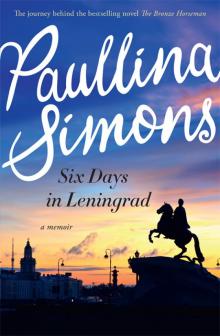 Six Days in Leningrad
Six Days in Leningrad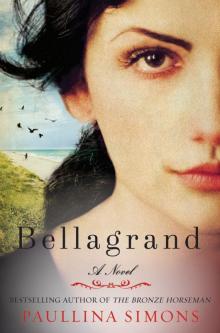 Bellagrand
Bellagrand Tatiana and Alexander
Tatiana and Alexander Road to Paradise
Road to Paradise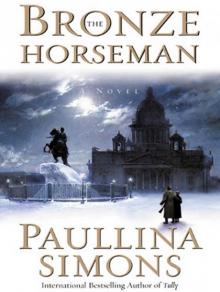 The Bronze Horseman
The Bronze Horseman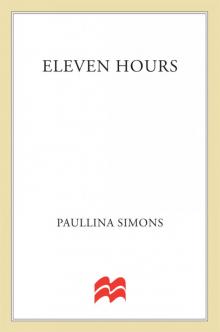 Eleven Hours
Eleven Hours Tatiana's Table: Tatiana and Alexander's Life of Food and Love
Tatiana's Table: Tatiana and Alexander's Life of Food and Love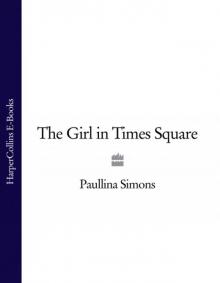 The Girl in Times Square
The Girl in Times Square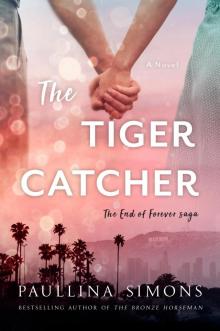 The Tiger Catcher
The Tiger Catcher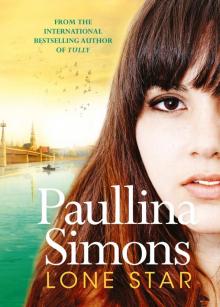 Lone Star
Lone Star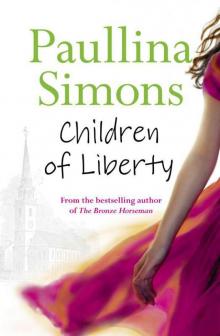 Children of Liberty
Children of Liberty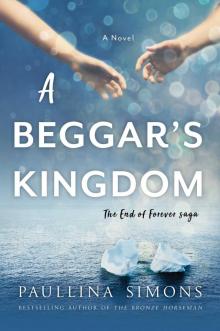 A Beggar's Kingdom
A Beggar's Kingdom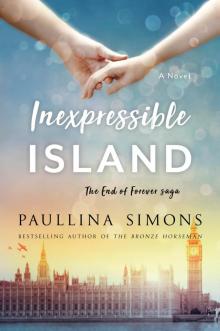 Inexpressible Island
Inexpressible Island Tatiana and Alexander: A Novel
Tatiana and Alexander: A Novel Tatiana's Table
Tatiana's Table A Song in the Daylight (2009)
A Song in the Daylight (2009)